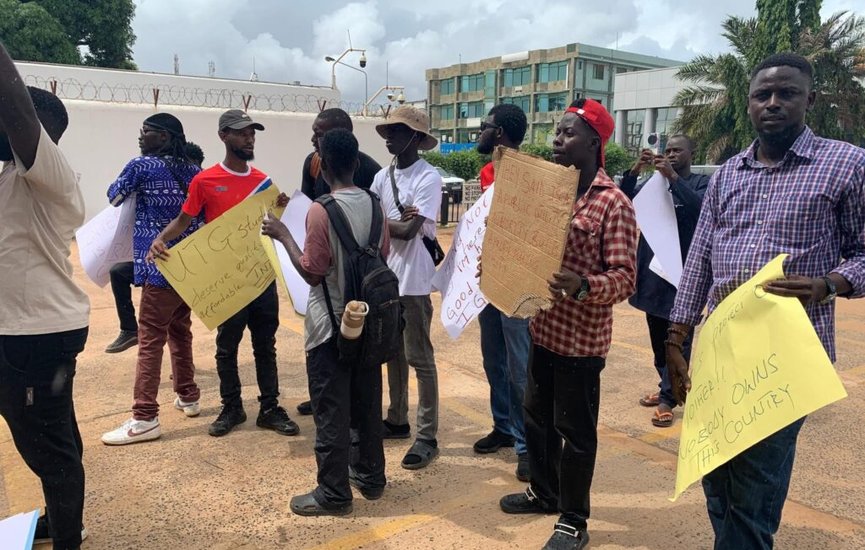Public unrest in The Gambia has intensified following the controversial removal of Auditor General Momodou Ceesay, culminating in the arrest of several protesters during a demonstration outside the National Audit Office. The protest, organized by the activist group Gambia Against Looted Assets (GALA), was intended to denounce what many see as a politically motivated dismissal of a key figure in the country’s anti-corruption efforts. Among those arrested were prominent activists Alieu Bah and Kemo Fatty, along with photojournalist Bakary Tamba, who were detained while addressing the press and calling for Ceesay’s reinstatement.
The arrests have sparked widespread condemnation from civil society organizations, opposition leaders, and international observers, who view the crackdown as a troubling sign of democratic backsliding. Eyewitnesses described the police response as aggressive and disproportionate, with plainclothes officers reportedly bundling the activists into a Police Intervention Unit vehicle without formal charges being announced. The incident has raised serious concerns about the government’s commitment to upholding civil liberties, particularly the rights to free speech, peaceful assembly, and press freedom.
Ceesay’s removal has become a flashpoint in Gambian politics, especially given his role in leading investigations into the misuse of public assets, including those tied to former President Yahya Jammeh. His refusal to accept a reassignment to the Ministry of Trade, and his insistence on maintaining his constitutional mandate, has been widely interpreted as a principled stand against executive overreach. The government’s decision to replace him and the subsequent police action against protesters have fueled suspicions that the move was intended to stifle accountability and weaken institutional independence.
Activist groups have vowed to continue their campaign, warning that further arrests will only deepen public resistance and erode trust in the administration. Legal experts have also weighed in, suggesting that both the removal of Ceesay and the arrests of protesters may violate constitutional protections and international human rights standards. As tensions mount, the situation remains fluid, with growing calls for judicial intervention and a transparent review of the government’s actions. The unfolding events have cast a spotlight on the fragile balance between authority and accountability in The Gambia’s evolving democracy.
